
Steven Soderbergh
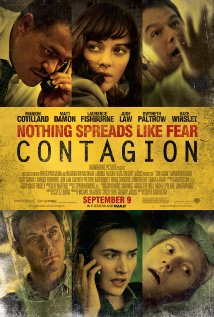 Steven Soderbergh directs a cast full of A-list Hollywood celebrities in the recently released Contagion. Playing into fears that to some extent are natural, while at the same time too often stoked of late by government fearmongers, it tells the story of a new virus that spreads quickly and wreaks havoc on the human race. Some very recognizable faces of the Hollywood elite turn splotchy and froth at the mouth.
Steven Soderbergh directs a cast full of A-list Hollywood celebrities in the recently released Contagion. Playing into fears that to some extent are natural, while at the same time too often stoked of late by government fearmongers, it tells the story of a new virus that spreads quickly and wreaks havoc on the human race. Some very recognizable faces of the Hollywood elite turn splotchy and froth at the mouth.
Comparisons will be made to Wolfgang Petersen’s Outbreak, but beyond the subject matter and big name actors, they do not much resemble one another. Contagion is either a well-researched and realistic movie about the response to a worldwide infectious disease — especially realistic at the level of government agencies like WHO and CDC — a carefully crafted fraud that makes you think it is, or a mix of the two. There are multiple storylines and it feels, at times, like a documentary. Outbreak is more fanciful and less earnest, investing little effort and less concern in realism but a good deal more in story. All things considered, I would say that Outbreak is the superior work, but Contagion is good in every aspect in which — one gets the feeling — it bothered to put in some elbow grease and is worth a viewing at the theater.
Where did it put this elbow grease? In the shots, in the blocking, in the photography, in the acting, in the editing — everywhere but the script. As one would expect from a Soderbergh film, it is well shot. Everything around the story works at a higher level than what you usually find in theaters nowadays. It has a good solid skeleton, healthy skin, strong muscles, even a brain, but it lacks a heart.
Perhaps it is a bit unfair to say that no elbow grease was spent on the script. I do not mean to give the impression that the screenwriter was incompetent. It was, as I said, either a well-researched flick or a good facsimile, either of which takes some work and skill. However, the type of story it tells, and the time it has to tell it, limit how emotionally invested we can become in the characters, which in turn limits how engrossed we can be in the action, the obstacles, and the resolution.
[continue reading…]
Help Promote Prometheus Unbound by Sharing this Post
With the recent release of the first part of the film adaptation of Atlas Shrugged (see Matthew’s review), the Institute for Humane Studies (IHS) — via LearnLiberty.org — brings us this interview with Professor Jennifer Burns, author of Goddess of the Market: Ayn Rand and the American Right, on how Ayn Rand fits into the classical liberal tradition.
In this video, Prof. Burns explains three classical liberal themes in Ayn Rand’s masterpiece Atlas Shrugged: individualism, suspicion of centralized power, and free markets. These themes come to life through the novel’s plot and characters and give the reader an opportunity to imagine a world where entrepreneurship has been stifled by regulations and where liberty has been traded for security. Burns ends by reviving Rand’s critical question: do you want to live in this kind of world?
[continue reading…]
Help Promote Prometheus Unbound by Sharing this Post
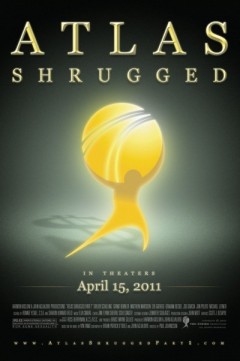
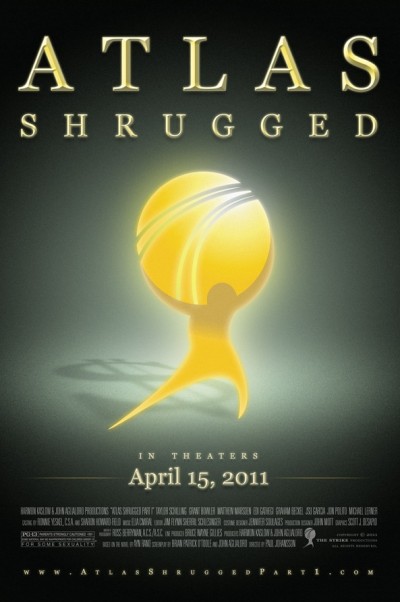 In Ayn Rand’s novel Atlas Shrugged, the first time we meet Dagny Taggart is on the Taggart Comet. The scene comes alive as Rand’s pen reveals the details such that the reader feels as if he is there. When Dagny awakens from a nap to discover the train has stopped, she gets off to investigate. Ayn Rand writes:
In Ayn Rand’s novel Atlas Shrugged, the first time we meet Dagny Taggart is on the Taggart Comet. The scene comes alive as Rand’s pen reveals the details such that the reader feels as if he is there. When Dagny awakens from a nap to discover the train has stopped, she gets off to investigate. Ayn Rand writes:
There was a cold wind outside, and an empty stretch of land under an empty sky. She heard weeds rustling in the darkness. Far ahead, she saw figures of men standing by the engine—and above them, hanging detached in the sky, the red light of a signal.
I have often thought Rand would have made an excellent director, and in that single paragraph we can see some of her talent. She appeals to three senses and evokes compelling images in our heads. A director, location scout, sound engineer, set designer, and cinematographer intent on filming such a scene have half their work done for them already. Let us hear the weeds but not see them; let us see Dagny shiver once and hold her coat tighter to her body; let us see a long shot of silhouettes of men bathed in red light from the stoplight that seems to float in the dark sky above them. The appropriate shots present themselves, practically instructing the director.
Before the stop, Dagny hears a brakeman whistling a tune she just knows was composed by Richard Halley.
“Tell me please what are you whistling?”
…
“It’s the Halley Concerto,” he answered, smiling.
“Which one?”
“The Fifth.”
She let a moment pass before she said slowly and very carefully, “Richard Halley wrote only four concertos.”
The boy’s smile vanished… “Yes, of course,” he said. “I’m wrong. I made a mistake.”
This early scene, which I find excellent and a great mood setter for the rest of the book, is absent from the movie. So too is any trace of the talent for storytelling present in it.
[continue reading…]
Help Promote Prometheus Unbound by Sharing this Post
If you enjoy dystopian fiction, and dystopias often provide great fodder for libertarians, be sure to keep an eye on Tor.com this week.
From the announcement:
“It was a bright cold day in April, and the clocks were striking thirteen.” —Nineteen Eighty-Four
Over sixty years later, 1984 has come and gone, but Orwell’s unsettling vision of the future continues to resonate throughout our culture, along with so many other great dystopian works of the last century, from Fahrenheit 451 toThe Hunger Games, Metropolis to Blade Runner, Harrison Bergeron to The Handmaid’s Tale…the list goes on and on and so, on this bright, not-so-cold day in April, we’re pleased to announce a weeklong celebration of a subgenre which has continually challenged the comfortable boundaries of our imaginations.
[continue reading…]
Help Promote Prometheus Unbound by Sharing this Post
- From io9 comes this story of a supermodel brainwashed to work for the CIA:
In the movie Salt, Angelina Jolie plays a double-agent who is mind-controlled by scary remnants of the USSR secret service. And in real life, the 1940s bombshell Candy Jones was apparently brainwashed with drugs and used as a CIA covert operative. At least, according to testimony that Jones gave while under hypnosis, after her husband realized that she was acting strangely and seemed to have a split personality. Several years ago, the Fortean Times described what Jones reported while hypnotized: More »
- To critics of Ayn Rand’s Atlas Shrugged who sneeringly intone that her plot and villains are unrealistic, John Stossel observes:
Joe Biden Railroad
It’s amazing how modern politics resembles scenes of Ayn Rand’s best-seller Atlas Shrugged.
Like the one in which a high-ranking government official pumps millions of dollars into a failing railroad company. The grateful railroad CEO rewards the government official by renovating his hometown train station and naming it after the government official. The renovation costs $5,700,000 more than expected.
Then comes the ribbon cutting ceremony. The CEO gets on one of his trains to go to the ceremony, but it breaks down. No surprise there: One out of every four trains his company runs is late [pdf]. The CEO, chuckling at the irony, abandons the train and takes a car to the ceremony.
Unfortunately, that wasn’t a scene in Atlas Shrugged. It happened this weekend.
The government official is Joe Biden.
By the way, the first of three Atlas Shrugged movies opens next month, appropriately on April 15th.

Do you know of any other examples?
Help Promote Prometheus Unbound by Sharing this Post

Aaron Eckhart plays SSgt. Michael Nantz
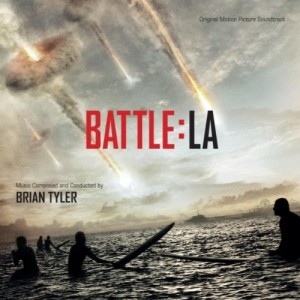
One way to determine just how predisposed one is to sci-fi is by comparing one’s opinion of Battle: Los Angeles with one’s opinion of Black Hawk Down. This opportunity is now available to theater-goers because the former movie was made by taking the old reels of the latter movie and digitally inserting aliens. This of course is not literally true (though it gives the good reader a very good idea of what to expect should he purchase tickets) so it’s not a perfect test. Black Hawk Down, as I recall, had some directorial flourishes and humorous moments that were absent from its sci-fi version, while the sci-fi version manages to pull more of a plot together amid all those bullets and explosions (indeed, I remember thinking, after Black Hawk Down, that the moviemakers had saved some money on production by bypassing the screenwriter at the cost of a missed opportunity to make a good movie). These variables aside, the two flicks are remarkably similar and one may take the test at theaters over the next handful of weeks.
For me, adding aliens to the plot, such as it is, went some way towards making the movie a more enjoyable experience. This should not be misconstrued as an endorsement for the movie with no reservations, merely a preference for one military action demo reel over another. As Shakespeare wrote, “If two men ride of a horse, one must ride behind.” If I am going to sit through about 100 minutes of violence and destruction by way of an armed forces recruitment video, there at least ought to be an alien invasion.
[continue reading…]
Help Promote Prometheus Unbound by Sharing this Post
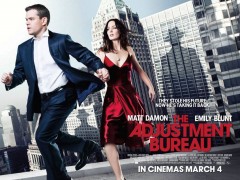
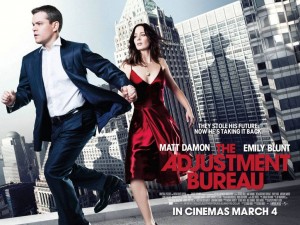
Some years ago I bought the first book of Isaac Asimov’s Foundation series, made it to approximately page 40 and tossed it aside. The writing was unimpressive, but not so bad that I would have normally opted to leave it unfinished. The problem for me was that I was not willing to suspend my disbelief so as to accept the author’s premises. I did not see the point in exploring something so patently untrue, and if his prose was going to be that insipid, with nothing especially arresting about the early part of the plot, then the opportunity cost was too high. I felt much the same as I watched The Adjustment Bureau, though I did sit through until the end.
In this film’s particular world, the human race has been guided through the centuries, off and on, by an entity referred to as The Chairman who has in his employ a number of beings, human in appearance, with extraordinary powers. The Chairman took the human race from barbaric tribalism to the height of the Roman Empire before deciding to allow us to make our decisions for ourselves. What followed were the Dark Ages, so this benevolent dictator assumed control once more and guided us through the Renaissance and the Enlightenment up to about 1910, whereupon we were given one more chance to be free. We produced WWI, The Great Depression, WWII and brought the world to the brink of nuclear holocaust, so we lost our freedom yet again, presumably for good this time.
[continue reading…]
Help Promote Prometheus Unbound by Sharing this Post
 Steven Soderbergh directs a cast full of A-list Hollywood celebrities in the recently released Contagion. Playing into fears that to some extent are natural, while at the same time too often stoked of late by government fearmongers, it tells the story of a new virus that spreads quickly and wreaks havoc on the human race. Some very recognizable faces of the Hollywood elite turn splotchy and froth at the mouth.
Steven Soderbergh directs a cast full of A-list Hollywood celebrities in the recently released Contagion. Playing into fears that to some extent are natural, while at the same time too often stoked of late by government fearmongers, it tells the story of a new virus that spreads quickly and wreaks havoc on the human race. Some very recognizable faces of the Hollywood elite turn splotchy and froth at the mouth.














